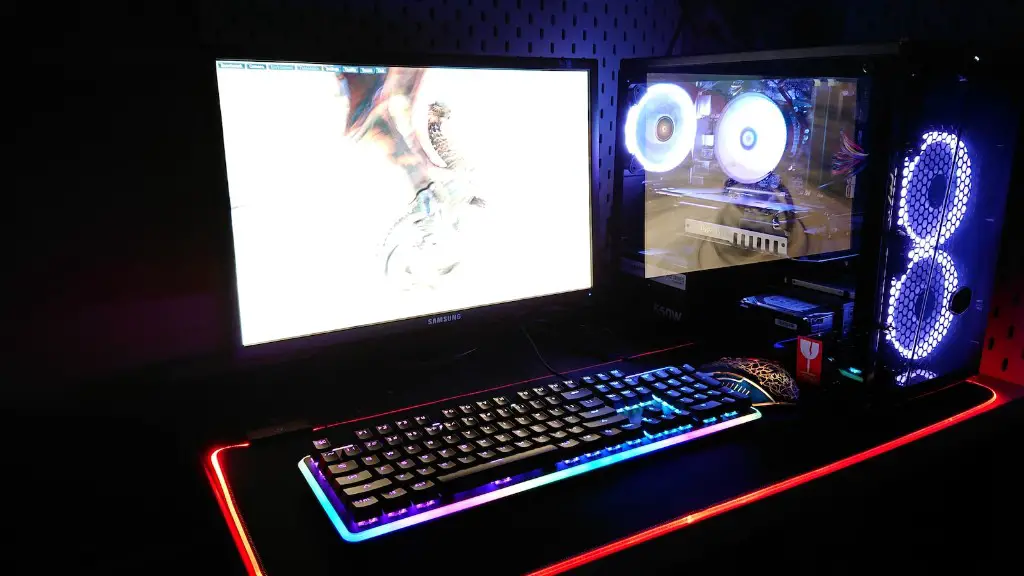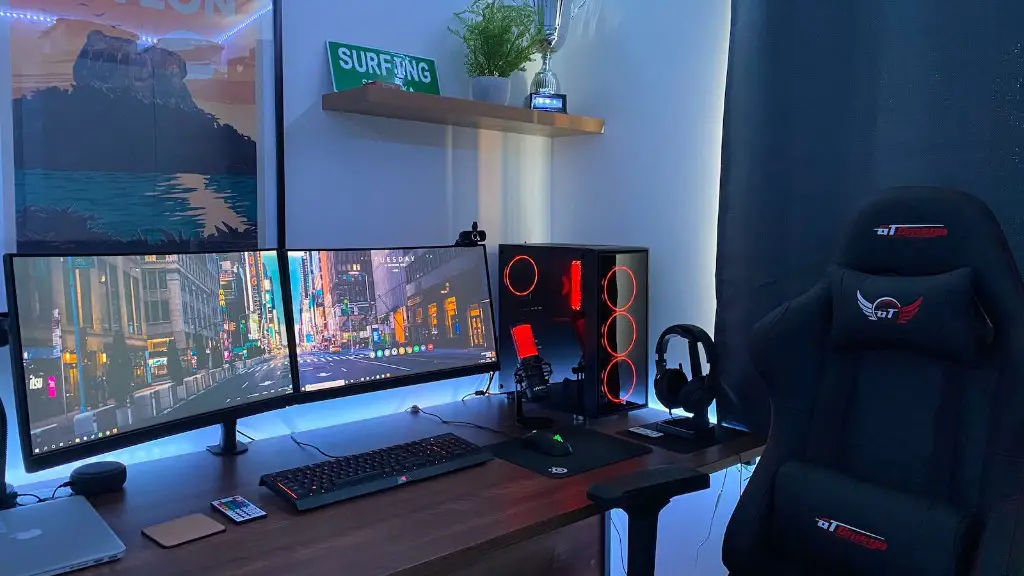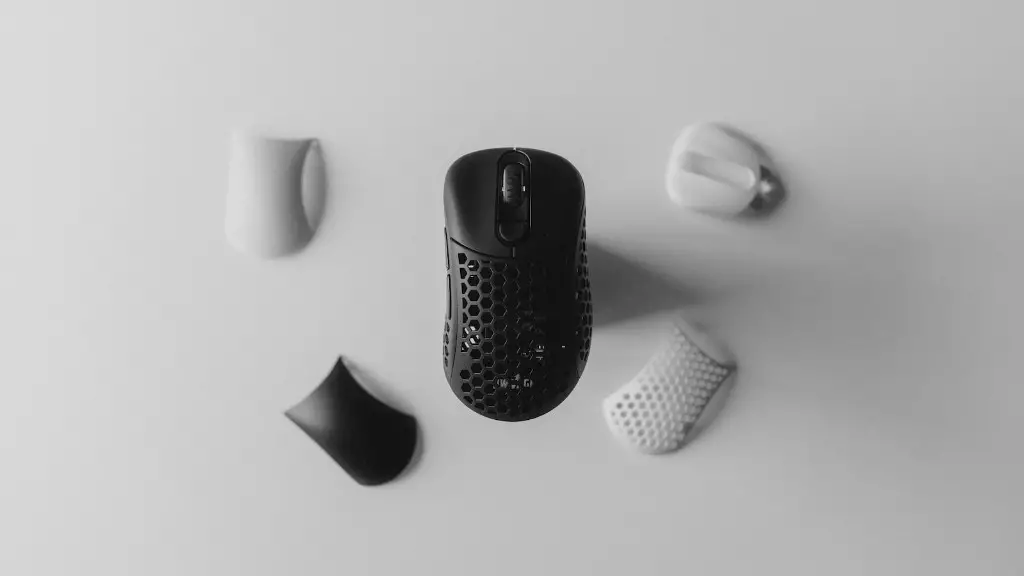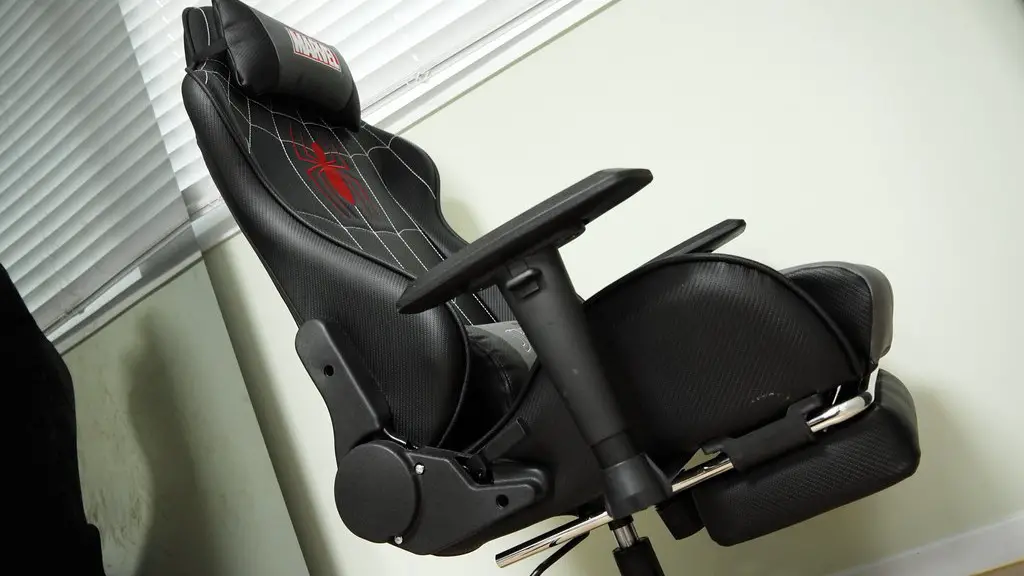A gaming PC needs to have certain specifications to ensure smooth playability and reliable performance. The key specs that you should look for in a gaming PC include a powerful processor, fast memory, plenty of storage space, a high-resolution display, and a reliable power supply. Here we outline the specs you should expect from a gaming PC and what they mean.
First and foremost, you need a powerful processor that can handle your gaming needs. The processor should be able to handle multiple games and tasks at once, so you’ll need to look for CPUs with a high clock speed, multiple cores, and hyperthreading for optimum performance. Many gaming PCs come with processors from Intel’s Core series, or AMD’s Ryzen series.
Next, you’ll need fast memory, usually in the form of RAM. This will determine how quickly your games will load and run. 8GB of RAM is usually enough for basic gaming needs, with 16GB recommended for more demanding gaming. High-end gaming PCs will come with 32GB or more RAM.
Storage space should also be considered, as you’ll need to store your games and software. Solid-state drives (SSDs) offer blazingly fast loading times, while traditional hard drives are larger but slower. A gaming PC should have a minimum of 128GB of SSD storage and at least 1TB of hard drive space, depending on your needs.
Display resolution is another important consideration. Your gaming PC should have a high-resolution display, such as full HD (1920×1080) or ultra HD (2160×1440) resolution, depending on your budget and gaming needs. Also pay attention to the refresh rate (measured in Hz), as higher refresh rates will provide smoother gameplay.
Finally, you should choose a reliable power supply with at least 500W output. This will provide enough power for the components you’ve chosen, so you won’t need to worry about your PC running out of juice during gaming sessions.
Overall, it’s important to pay attention to the specs of your gaming PC, as they’ll determine your gaming experience. You should look for a powerful processor, fast memory, plenty of storage, a high-resolution display, and a reliable power supply. With the right specs, you’ll be able to enjoy gaming to its fullest potential.
Memory & Graphics
Memory and graphics are an important part of any gaming PC, and the specs should be chosen carefully. The more memory you have, the faster your gaming PC will be as it will be able to store more data, improving performance and allowing for more complex visuals. A good gaming PC should have at least 8GB of RAM and a dedicated graphics card with at least 4GB of memory.
A good rule of thumb when looking at graphics cards is the higher the number of cores and the higher the clock speed, the better the graphics will be. You should also look at the type of graphics memory your card supports, as it can make a huge difference in performance. For example, a graphics card with 4GB of GDDR5 memory will be significantly faster than one with 4GB of DDR3.
You should also consider the ports your graphics card has, as this will allow you to plug in multiple monitors or connect to other devices such as a VR headset. Make sure the graphics card is compatible with the monitors you intend to use and has the ports you need.
In addition to the graphics card, you may also want to consider upgrading the other components in your gaming PC. For example, a solid-state drive can drastically improve loading times and the overall speed of your gaming PC, while a custom liquid cooling system can ensure your PC stays cool during long gaming sessions.
Finally, make sure your PC has a good cooling system to ensure optimal performance during gaming sessions. A good cooling system will keep the temperature of your PC’s components within a safe range, preventing damage to them and improving performance.
Peripherals & Accessories
In addition to the specs of a gaming PC, there are also several key peripherals and accessories you should consider. A decent gaming mouse and keyboard are essential, as they will make it easier to control your games and provide more accurate inputs. Headsets are another good accessory, as they allow you to talk to your teammates easily and clearly.
You should also consider investing in a gaming monitor, or multiple monitors, to give you a larger field of vision and a more immersive experience. Monitors come in a variety of sizes, resolutions and refresh rates, so you’ll need to consider which one is best suited to your gaming needs.
You may also want to consider investing in a gaming chair as this will help you maintain a comfortable seating position, which is essential for prolonged gaming sessions. Other accessories such as external hard drives and controller extensions can also be useful for gamers who prefer playing with a controller.
Finally, it’s important to make sure you have the right cables and adapters for your setup. For example, if you plan to connect multiple monitors, you’ll need a specific type of cable and adapter to do so.
Software and Operating System
The software and operating system running on your gaming PC are also important. For starters, you need to make sure your gaming PC is running the latest drivers, as they will often improve performance and add features. It’s also important to make sure your anti-virus and other security software is up to date to keep your PC safe.
In terms of operating system, many gaming PCs come pre-installed with either Windows 10 or Linux. Windows is more widespread and is the go-to choice for most gamers, however, Linux is a good option for those looking for more control over their gaming PCs.
Other software you may want to consider include streaming and recording software, as this will allow you to share your gaming experiences with other gamers. You may also want to consider investing in a game booster, as this will reduce lag and improve the performance of your games. Additionally, make sure you have Office suite, as this will give you access to all of Microsoft’s editing and document software.
Battery Life & Cost
Another important consideration when buying a gaming PC is the battery life. Make sure you check the battery life of the laptop or desktop you’re buying to ensure you can use it for extended gaming sessions. The battery life of a gaming PC is usually lower than that of a regular laptop, so it’s important to make sure you have ample battery life.
Finally, the cost of a gaming PC should also be taken into account. Gaming PCs are often more expensive than regular PCs, and the cost can vary greatly depending on the specs and components you choose. You can save money by opting for second-hand parts or limiting your choice of components, but it’s important to make sure you get the most out of your investment.
In Conclusion
In conclusion, it’s important to take into account all of the key specs and components when building or buying a gaming PC. Consider the processor, memory, graphics, storage, display, peripherals, and operating system you need, and make sure your gaming PC has a reliable power supply. Additionally, factor in battery life and cost when shopping for a gaming PC.




